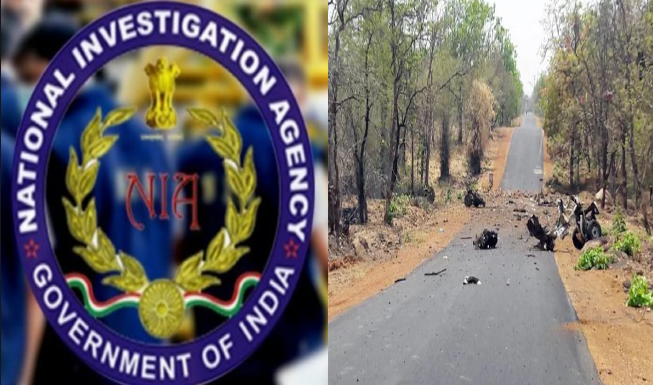
The Mumbai court has recently rejected the pleas of three accused in the May 2019 Gadchiroli IED blast case.
The plea sought discharge from provisions of stringent anti-organized crime law MCOCA, saying ample material existed to show they played a “major role in the commission of the crime” and are members of a banned outfit.
There, 15 security personnel of the Quick Response Team (QRT) and one civilian were killed in an IED (improvised explosive device) blast on May 1, 2019, in Gadchiroli district in the Vidarbha region, carried out by Naxalites.
The Special NIA (National Investigation Agency) court judge Rajesh Katariya rejected the pleas of the three accused — Somsay Madavi, Kisan Hidami and Parasram Tulavi on March 6. A detailed order was made available on Thursday.
The trio and 6 others have been booked under the Maharashtra Control of Organised Crime Act (MCOCA), Indian Penal Code (IPC) section for murder, and provisions of the Unlawful Activities (Prevention) Act, an anti-terror law.
If found guilty of offenses covered under the MCOCA, the accused are liable to get the death sentence or life imprisonment, and a minimum fine of ₹1,50,000.
In his application filed through advocate Shariff Shaikh, accused Tulavi claimed he has been falsely implicated in the crime.
During arguments, Advocate Shaikh submitted before the court that to prosecute his client under the MCOCA, the prosecution has to prove the ingredients of alleged offenses under the Act.
There was no such material against the applicant in that regard and the sanction granted to prosecute the accused under the MCOCA was invalid, the defence lawyer submitted.
Similarly, contentions were raised by the other two accused (Madavi and Hidami) through their advocate Wahab Khan.
However, the special public prosecutor Jaysing Desai opposed the discharge applications, stating the accused that are members of the banned organization Communist Party of India (Maoist).
Desai argued that they were involved in the killing of police personnel and were also part of the conspiracy behind the bomb blast. Many instances have been recorded in the past regarding illegal acts carried out by members of the said organization (CPI-Maoist).
After hearing both sides, the court held that prima facie, there was ample material to show the applicants are members of the banned organization.
The perusal of the statement of the co-accused clearly shows the applicants that had been part of a major conspiracy linked to the bomb attack and participated in a meeting before the strike, it said.
“It also shows that applicants played a major role in the commission of the crime,” the court noted in its order, adding allegations made against them are “specific” in nature.
The judge stated that the material placed before the court disclosed grave suspicion against the trio and whether or not allegations levelled against them are true is a matter that can’t be determined at the stage of framing of charge.
The NIA court judge added that “Considering the factual matrix, I am of the view that mitigating circumstances are very less and to do the ultimate justice, trial needs to be held.”




